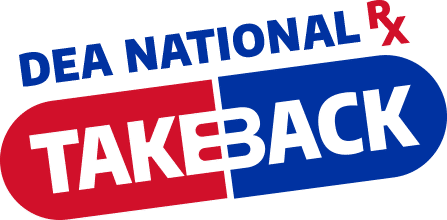Better Business Bureau Warns About New COVID-19 Website Scams
The following is an article by the Better Business Bureau (BBB) about fake COVID-19 websites published on April 28:
With shortages of sanitizers, disinfectants, masks and paper products seen throughout the country since the COVID-19 virus first surfaced, BBB warns that websites selling these and other related products have also surfaced.
An investigation by BBB Wisconsin shows that most of these websites are newly created, within the last couple weeks or so. And, as quickly as they’ve surfaced, many have disappeared already. The perpetrators behind the websites keep their identity private, and often disband the sites soon after they’ve created them and have stolen your money.
BBB has been busy investigating several sites and complaints received since mid-March.
One such site was Popumart (popumart.com). Seven complaints have been received from consumers in five states. According to complainants, they responded to ads on social media sites for face masks and hand sanitizers. Ordered products were not received.
Popumart does not list an address or phone number on its website.
The website, which was created on 3/23/20, no longer exists.
Another website, mizinshop.com, was created on 4/1/20 and lists an address in Franco, Wisconsin. This is a fake address, as there is no such city in Wisconsin.
R.G. of California writes, “This site was running ads selling personal protective equipment for Covid-19. I purchased 2 carbon face masks for $53.20…products never arrived and they do not have a customer service phone number. The address does not seem to exist and I emailed them several times with no response. I believe this site is a scam.”
Consumers see an address listed on a website and assume it’s legitimate. Take a moment to check the address and research the company. Scammers are opportunists; they take advantage of whatever is happening currently, like the COVID-19 pandemic, to steal your money.
Spartadata, which also uses the name N95 Health, has been purportedly selling face masks through its website, N95health.com, which was just created on 3/2/20. The address listed on its website is residential, not accurate, and likely hijacked. BBB called the phone number listed on its website but reached a “virtual receptionist” who could not answer any questions about the company. BBB left a message for a return call, but it was not returned.
BBB says there are a few things that you should be on the lookout for when shopping online.
- Know who you are dealing with. Check spelling and domain names. Google the website to see if others have been complaining. Look for other tell-tale signs such as poor grammar, lack of information, and capital letters in the middle of sentences.
- Ensure the website address begins with https://. Also, check the address bar for a “not secure” message. A trustworthy online seller will have a secure domain, keeping your information safe from hackers. Many websites will also have security certification logos visible on their page. Always click on them to verify they open an attached security policy because many scam sites will simply display these logos without an option to click through to a policy.
- Check the age of a website’s domain. Use a website like
Whois to check whether a website was established recently. Because crises like the coronavirus provide new avenues for scammers to take advantage of the public, they will often establish new websites that match current events.
- Check for an about page and a contact us section. Scammers are creative, but they don’t often take the time to fabricate a full brand history like you would find on a company’s about us page. They may fabricate contact information, but BBB recommends ensuring the phone numbers and email addresses are both legitimate and responsive.
- Phishing emails often lack personalization. Legitimate companies communicate with customers using their name, but scammers don’t often know their victims. Many email scams will begin with a non-personalized salutation, like “Dear sir or madam.”
- Check a business at
BBB.org. Whether the website offers face masks or toilet paper, verify its legitimacy before you make a purchase or provide your personal information.
- Always pay by credit card. When purchasing any product or service through a website, always use a credit card as your payment method. If you pay by credit card online, your transaction will be protected by the Fair Credit Billing Act. If the product arrives defective or doesn’t arrive at all, you can dispute the charge on your credit card and temporarily withhold payment while the creditor investigates them.
Read more Tips for Smart Shopping Online.
See more COVID-19 related scams.
If you encounter a scam, please report it to our BBB Scam Tracker at BBB.org/scamtracker. Even if you don’t fall victim to the scam, the information allows you to share your experience with others and helps to protect the public from scammers.
BBB Serving Wisconsin contributed to this article.
###


